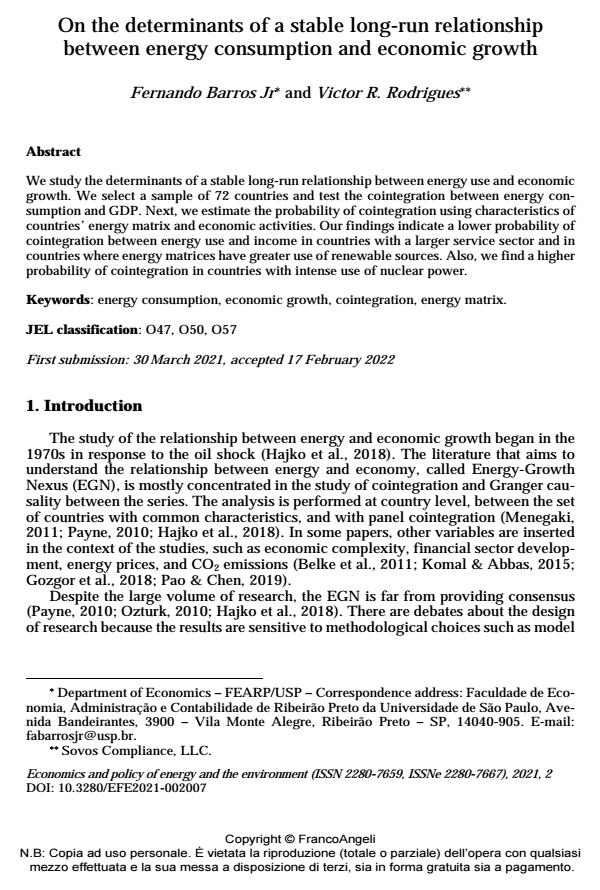On the determinants of a stable long-run relationship between energy consumption and economic growth
Journal title ECONOMICS AND POLICY OF ENERGY AND THE ENVIRONMENT
Author/s Fernando Barros Jr, Victor R. Rodrigues
Publishing Year 2022 Issue 2021/2
Language English Pages 25 P. 147-171 File size 186 KB
DOI 10.3280/EFE2021-002007
DOI is like a bar code for intellectual property: to have more infomation
click here
Below, you can see the article first page
If you want to buy this article in PDF format, you can do it, following the instructions to buy download credits

FrancoAngeli is member of Publishers International Linking Association, Inc (PILA), a not-for-profit association which run the CrossRef service enabling links to and from online scholarly content.
We study the determinants of a stable long-run relationship between energy use and economic growth. We select a sample of 72 countries and test the cointegration between energy consumption and GDP. Next, we estimate the probability of cointegration using characteristics of countries’ energy matrix and economic activities. Our findings indicate a lower probability of cointegration between energy use and income in countries with a larger service sector and in countries where energy matrices have greater use of renewable sources. Also, we find a higher probability of cointegration in countries with intense use of nuclear power.
Keywords: energy consumption, economic growth, cointegration, energy matrix
Jel codes: O47, O50, O57
Fernando Barros Jr, Victor R. Rodrigues, On the determinants of a stable long-run relationship between energy consumption and economic growth in "ECONOMICS AND POLICY OF ENERGY AND THE ENVIRONMENT" 2/2021, pp 147-171, DOI: 10.3280/EFE2021-002007